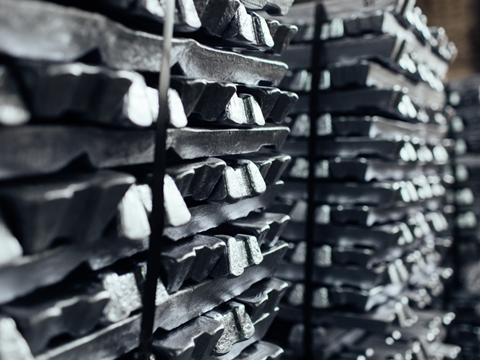
Aluminium Deutschland, IG Metall, and IGBCE have joined five federal states and various social partners in the German Aluminium Alliance, which aspires for climate neutrality and competitiveness for Germany’s aluminium industry.
The industry constitutes over 62,000 employees and apparently surpassed €24 billion in sales last year – providing for such industries as packaging, transport, construction, and electrical engineering. Aluminium Deutschland also believes that various net-zero technologies are ‘unthinkable’ without aluminium.
As such, the German Aluminium Alliance has been formed. Its other members include the economic ministries of North Rhine-Westphalia, Rhineland-Palatinate, Saxony-Anhalt, and Saarland, as well as the economic authority of the Free and Hanseatic City of Hamburg.
The alliance has agreed on four common goals. One is the pursuit of climate-neutral production, involving the development of innovative technologies to cut down on CO2 emissions and achieve climate neutrality across the value chain.
Another is circularity; the signatories aim to uplift a circular economy and drive the use of secondary raw materials to conserve resources and reduce environmental pollution.
By calling for fair competitive conditions on a national and international scale, they intend to ensure the competitiveness of the German aluminium industry and job security for German employees.
Additionally, they are targeting social responsibility via co-determination and collective bargaining. They plan to optimize working conditions and social security.
Alliance members have also set out key demands for the industry’s transition into climate-neutral production, including secure, stable, and affordable energy supply – believed to be an important factor in the industry’s competitiveness.
Investments in research and development are highlighted as essential steps to develop innovative decarbonization technologies, while fair competitive conditions on an international scale are expected to prevent carbon leakage.
“I am delighted about the agreement to make the aluminium industry in Germany competitive and climate-neutral as quickly as possible,” said Mona Neubaur, minister for Economic Affairs and Climate Protection for the State of North Rhine-Westphalia. “In this way, we will ensure the framework conditions for companies in the future. This is primarily about affordable electricity prices, a secure and renewable energy supply and a strong circular economy.”
Rob van Gils, president of Aluminium Deutschland, continued: “Aluminium is not only essential for numerous industries such as transport, construction and electrical engineering, but also plays a central role in the implementation of net-zero technologies. As a key material for decarbonization, aluminium is needed in large quantities to achieve our climate goals.
“Together with politicians and social partners, we are committed to ensuring that the German aluminium industry masters this challenge sustainably and competitively.”
“We are pleased that the signatories have agreed on common goals when it comes to aluminium,” stated Jürgen Kerner, chairman of IG Metall. “This once again highlights the special importance of the German aluminium industry, which, with its employees and its know-how, plays a significant role in decarbonization.”
“The focus on the circular economy in particular is extremely important for achieving climate goals,” concluded IGBCE board member Francesco Grioli. “The material aluminium is therefore part of the solution for achieving the energy transition.”
The announcement comes after Aluminium Deutschland called for ‘more common sense’ in German economic policy earlier this year. Following a decline in German aluminium production during Q3 2023, the organization feared that increasing over-regulation, high energy costs, and economic recession could have negative effects on the industry.
Despite its ‘cautious’ optimism for the progress of German aluminium in 2024 – inspired by increases in tube and aerosol can deliveries to Germany between 2022 and 2023 – production continued to decrease in Q1 2024; this was attributed to economic tensions, third-country imports, and a persistence in high energy prices.
However, despite economic difficulties and limited access to recyclate worldwide, the International Organization of Aluminum Aerosol Container Manufacturers (AEROBAL) reports that its members’ global deliveries rose by 4.4% in the first half of 2024, reaching 3.4 billion units.
If you liked this story, you might also enjoy:
The ultimate guide to the Packaging and Packaging Waste Regulation in 2024
How are the top brands progressing on packaging sustainability?
Sustainable Innovation Report 2024: Current trends and future priorities
Everything you need to know about global plastic sustainability regulation














No comments yet